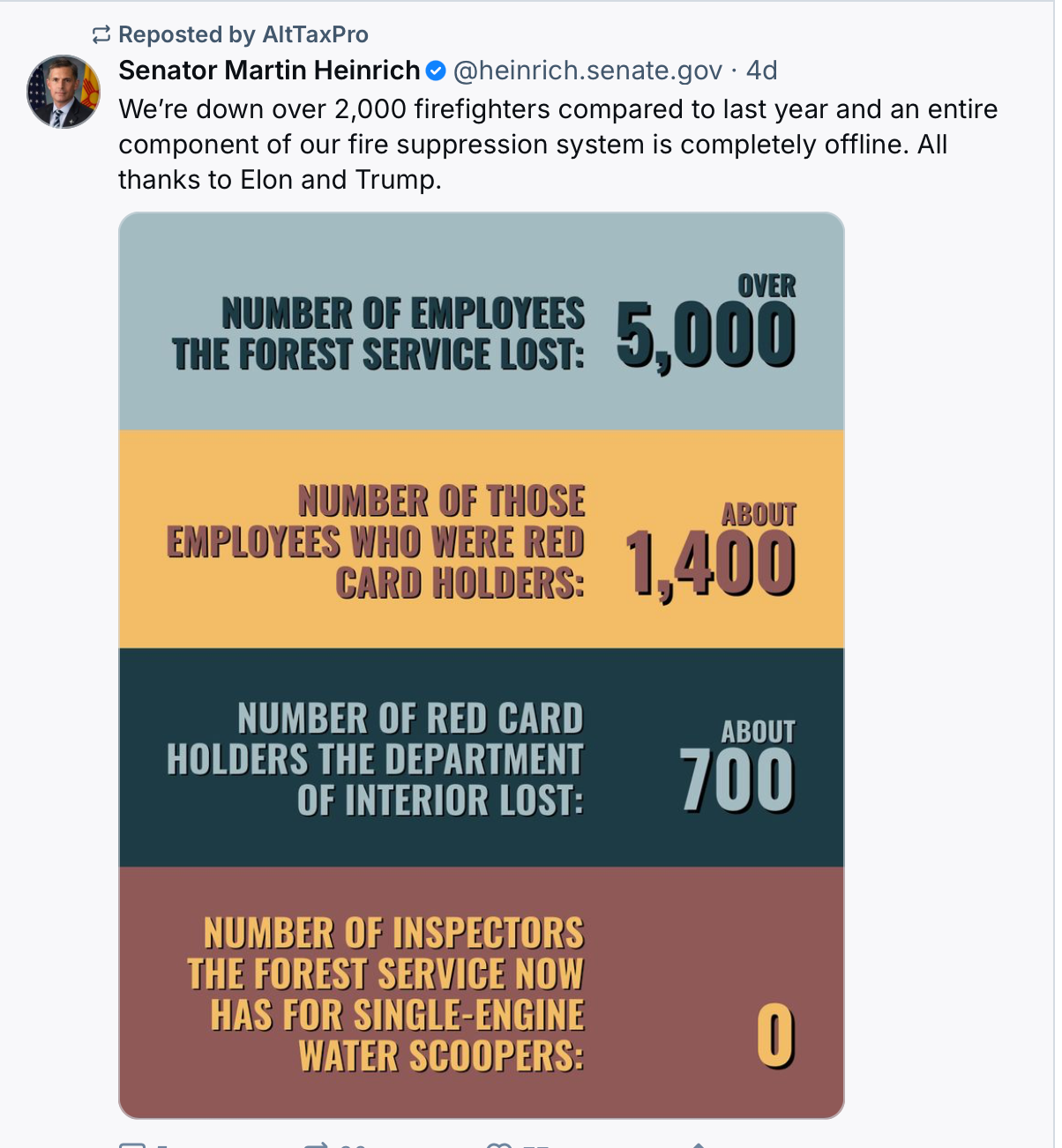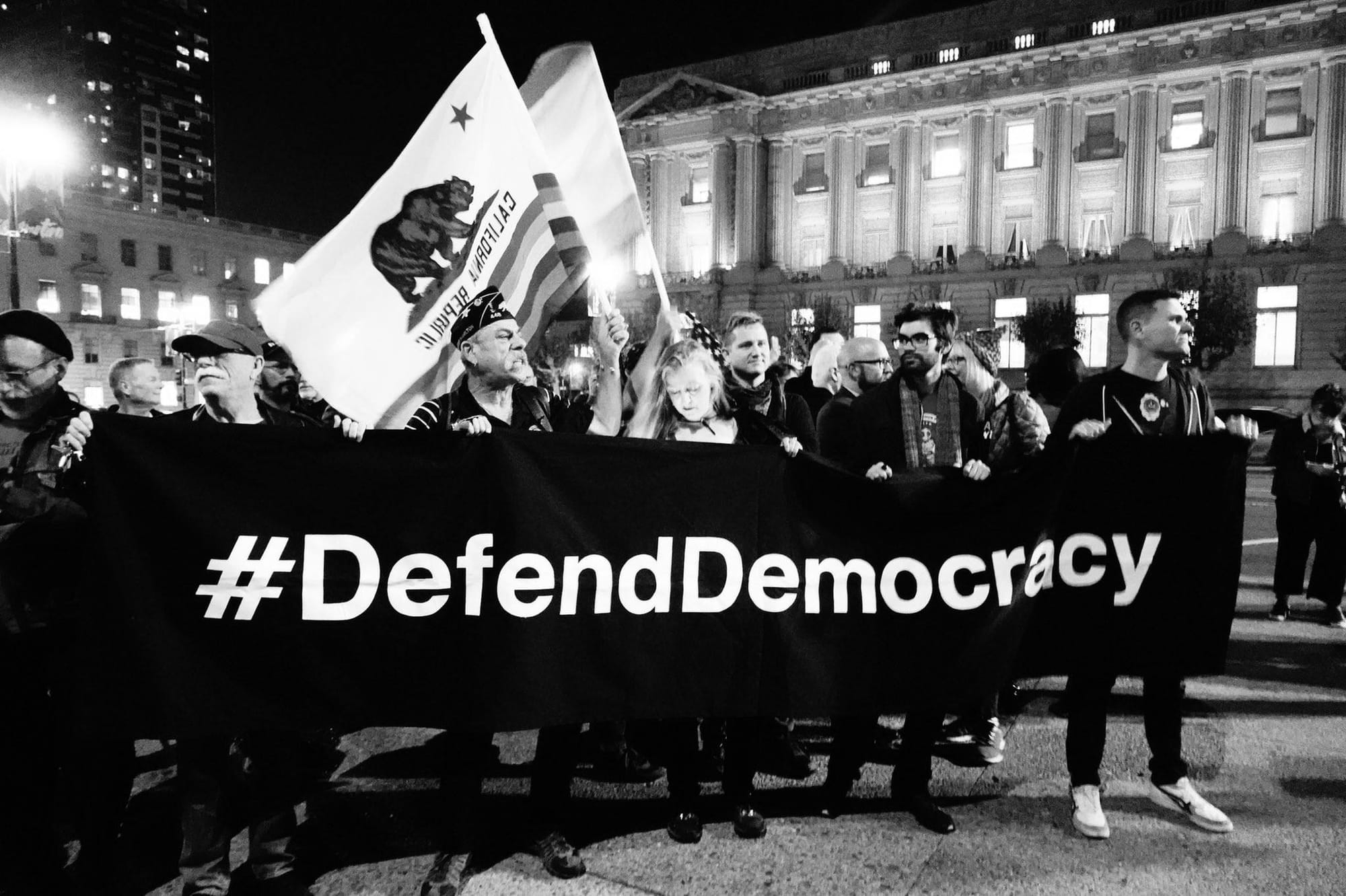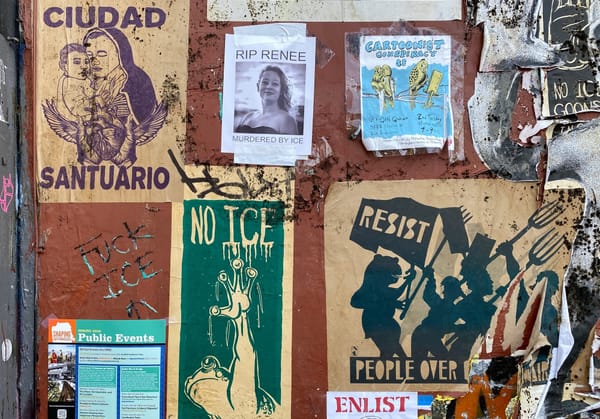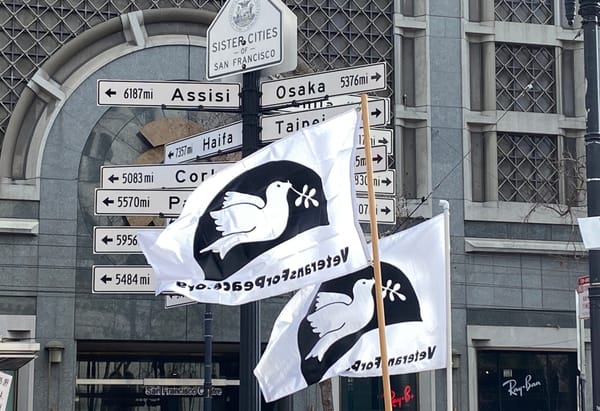Today Is the Original No Kings Day/Happy Bastille Day

Yesterday I wrote, "The United States is being destroyed from within, and mainstream journalism isn't making that clear. It's when you assemble the whole picture that you have to raise the question if the intention is to destroy this country and whether this country is in fact being destroyed. The mainstream media are overall failing to raise the alarm, failing to connect the dots, failing to show how all the injuries, in the metaphor above, add up to profound danger to the nation's people, its institutions, and its environment."
Today some more destruction happened, which means that it's a weekday in Trump's America. It's also Bastille Day, the day the French Revolution began in earnest. I'll get to that later. First, a list but don't let this list crush you. There's a very different list for dessert, and this piece is far from hopeless. But today:
--The Supreme Court okayed the dismantling of the Department of Education by deciding (usual 6/3 decision) that the president had the power to do so.
--Science got attacked some more. Nature reports, "In an unprecedented move, the US National Institutes of Health (NIH) will soon disinvite dozens of scientists who were about to take positions on advisory councils that make final decisions on grant applications for the agency, Nature has learnt. NIH staff members have been instructed to nominate replacements that are aligned with the priorities of the administration of US President Donald Trump — and have been warned that political appointees might still override their suggestions and hand-pick alternative reviewers."
--Labornotes reports, "After signing a critical letter to their boss, 139 EPA workers were put under investigation and on a 2-week paid administrative leave July 3. The workers wrote to EPA administrator Lee Zeldin that the mission of their agency is being undermined by the Trump administration’s actions and asked Zeldin to back away from 'harmful deregulation, mischaracterization of previous EPA actions, and disregard for scientific expertise' and re-commit 'to his oath to protect the health of the American people and our environment.'"
--Friday Reuters reported, "The State Department began firing more than 1,350 U.S.-based employees on Friday as the administration of President Donald Trump presses ahead with an unprecedented overhaul of its diplomatic corps, a move critics say will undermine U.S. ability to defend and promote U.S. interests abroad."

--The Forest Service employee roster has been thinned out in ways that affect the ability to fight wildfires, which along with abolishing the roadless rule, puts millions of acres of federal forestland in peril. Senator Martin Heinrich of New Mexico puts the cuts at 2000 firefighters. Congressman Jeff Hurd of Colorado puts the numbers even higher: "Red-card-carrying Forest Service staff have the skills, training, and qualifications to supportwildfire response (and, indeed, fight wildfires), but hold other full-time jobs at the agency. Redcard holders are the backbone of federal firefighting efforts, proving critical support and addedcapacity when a wildfire breaks out. We estimate, since January, the Forest Service has lostroughly 3,000 red-card holders across the country."

--The floods in Texas made many question the Trump Administration's intent to eliminate FEMA, the Federal Emergency Management Agency, altogether, along with threats to do the same to the National Weather Service, which has already had its staff cut (in ways that did not impact their ability to deliver warnings on July 4th about the Texas floods, but may well do so for future disasters). Meanwhile, in March, the Hill reported, "The Trump administration has made drastic cuts to the National Oceanic and Atmospheric Administration (NOAA) that threaten to impact weather forecasting and other key services provided by the agency. "
--And in a surpassingly weird and disturbing turn, we learned today that the US Military under Pete Hegseth has signed up Grok, the AI thingie on Elon Musk's X/Twitter platform that last week went full Nazi as it spouted final-solution lines and other extremely antisemitic stuff. Anyone who thought the right was sincerely concerned about antisemitism, as opposed to coopting it to go after the left, immigrants, Muslims, and supporters of Palestinian rights was a sucker. Or worse. That Grok was so easily manipulated into spouting last week's pro-Hitler stuff and, a while back, some loopy Elon's-personal-grudge stuff about white South Africans is a reminder that AI tools like Grok can, of course, be manipulated, and all those people treating them like godlike oracles are fools. Here's Wired reporting on Grok's antisemitic rampage.

Everything that's not being dismantled is being corrupted. And this is just a casual list I put together.
But there is good news. All this is wildly unpopular. Greg Sargent, in his excellent podcast The Daily Blast, a project of The New Republic, notes that Trump is becoming more authoritarian as he's becoming more unpopular, and you can look at the former and say he's getting stronger, but at the latter and see he's getting weaker.
A startling new poll from Gallup reports how high public support for immigrants is; "Americans have grown markedly more positive toward immigration over the past year, with the share wanting immigration reduced dropping from 55% in 2024 to 30% today. At the same time, a record-high 79% of U.S. adults say immigration is a good thing for the country" says the accompanying news story from Gallup. The story continues, "Thirty-five percent approve of his handling of the issue, including 21% strongly approving, while 62% disapprove, including 45% strongly."
This is all a reminder that they have to be authoritarian, because what they want to do is unpopular. They have to be authoritarian because they want to override the will of the people. Which makes being strong-willed all the more important. Also important is remembering that this is a wildly unstable situation and what happens next is at least partly up to us.
What comes to mind is a particularly memorable essay from Heather Cox Richardson last November, about how in the early 1850s this country seemed to be onboard with the conservative pro-slavery forces. "If you had been alive in 1853, you would have thought the elite enslavers had become America’s rulers. They were only a small minority of the U.S. population, but by controlling the Democratic Party, they had managed to take control of the Senate, the White House, and the Supreme Court."
But seven years later, the candidate for a new party, Abraham Lincoln, had won the presidency, and this country was on the cusp of the Civil War that would abolish slavery. After the war, the expansion of equality continued with passage of the Fourteenth Amendment, which among other things recognized birthright citizenship--which of course is also under attack.
What also comes to mind is a famous declaration by the writer Ursula K. LeGuin late in her long life: "I think hard times are coming when we will be wanting the voices of writers who can see alternatives to how we live now and can see through our fear-stricken society and its obsessive technologies to other ways of Being, and even imagine some real grounds for hope. We live in capitalism. Its power seems inescapable. So did the divine right of kings. Any human power can be resisted and changed by human beings. Resistance and change often begin in art, and very often in our art: the art of words."
In France, in the 1780s, the people were growing discontent with the divine right of kings, specifically their own Louis XVI. On June 20th, 1789, the powerless--beyond their voices--assembly known as the Third Estate called upon the king to grant a constitution. On July 14th, 1789, Parisians rioted, broke in, overwhelmed the government officials, and freed prisoners in the grim Bastille prison. Dozens were shot by the guards. But the people won the skirmish. They would win the revolution too.
I have often thought that the real beginning of the revolution, the turning point in who had power, was not this violence led by men but a subsequent relatively nonviolent march by the market women. I wrote about that in my book Wanderlust: A History of Walking. "On the morning of October 5, 1789, a girl took a drum to the central markets of les Halles, while in the insurrectionary Faubourg Saint-Antoine a women compelled a local cleric to ring the church bells in his church. Drum and bells gathered a crowd. The women--now numbering in the thousands--chose a hero of the Bastille to lead them, Stanislas-Marie Maillard, who found himself constantly preaching moderation to his followers. Though made up mostly of poor working women--fishwives, market women, laundresses, portresses--the crowd included some women of means and a few noted revolutionaries." They brought the king, the queen, and the royal family back to Paris, where they became prisoners of the people. The king was executed in January of 1793.
This might be what LeGuin was thinking about. Late last week, I started thinking about how many dictators and authoritarians ended out of power and otherwise badly. It follows. I am most definitely not saying we are already under authoritarianism or that Trump is a dictator, nor am I speculating on how this will end. But many seemed to find the list an encouraging reminder that things change, that those who seize control often lose it, that popular power matters, that the wheel of fortune never stops for long.
Here's the list. Some of the stuff is old and familiar but read on: there's some exciting 2024 stuff on it too.
How they ended:
Hitler committed suicide.
Mussolini was shot .
Stalin died at home, while in power– some say of an untreated stroke--the doctors were afraid of him; some experts think he was poisoned by his nearest associates.
Pinochet died under house arrest, while facing criminal charges in Europe and in Chile.
The Shah of Iran died in exile.
Cambodia's Pol Pot died under house arrest.
Romania's Ceausescu and his wife were executed by firing squad.
Saddam Hussein was hanged.
The Dominican Republic's Rafael Trujillo was assassinated.
Nicaragua's first Somoza dictator was assassinated by a young poet. The last Somoza dictator was assassinated in exile after being overthrown.
Guatemala's Carlos Castillo Armas was assassinated by a leftist.
Paraguay's Alfredo Stroessner, Colombia's Gustavo Rojas Pinilla, and Venezuela's Marcos Pérez Jiménez all died in exile.
Argentina's Jorge Rafael Videla died while serving a fifty-year sentence.
Panama's Manuel Noriega died as a Panamanian prisoner after serving time in US and French prisons for his crimes.
The Philippines's Ferdinand Marcos died in exile, and Rodrigo Duterte is currently in the Hague for crimes against humanity.
Bulgaria's Todor Zhukov, who ruled Bulgaria from 1954 to 1989 was sentenced to prison there
East Germany's Erich Honecker sought asylum in the Chilean embassy in Moscow, but was brought back to a reunified Germany to stand trial, though he had terminal cancer, so was allowed to go die in Pinochet's Chile.
Slobodan Milošević died in the Hague while on trial for war crimes.
Hashim Thaçi, former p.m. of Kosovo, is still being held in the Hague.
The Khmer Rouge's Khieu Samphan is serving a life sentence in Cambodia.
Charles Taylor of Liberia is serving a 50-year sentence in the UK.
Chad's Hissene Habre went into exile in Senegal, where he was tried on charges of crimes against humanity and given a life sentence; he died in prison.
Libya's Gaddafi was killed by rebels.
Uganda's Idi Amin died in exile.
Mobutu Sese Seko of the Democratic Republic of the Congo was ousted and died in exile.
Macías Nguema of Equatorial Guinea was tried, condemned, and executed by firing squad.
Haiti's Jovenel Moïse was assassinated.
Only last winter Assad fled Syria; only last summer Sheikh Hasina fled Bangladesh. And in December, South Korea successfully pushed back a coup attempt, arrested and impeached the president who tried, and he's now in jail awaiting trial. He could face the death penalty if convicted.
That hasn't been the fate of all dictators but for many of them the chapters after their power crumbled were not what they would have written. Nor is this reassurance that justice or democracy always wins or dismissal of the damage each of them did. In every case where something resembling some form of justice was done, it took brave and dedicated people to bring it about.
This list is not complete by any means. But let me add that right now Trump is threatening Brazil with tariffs for putting Bolsonaro, the chump who would be dictator (but didn't get reelected then threw a violent hissy fit coup attempt like Trump), on trial.




